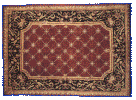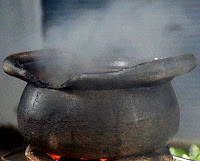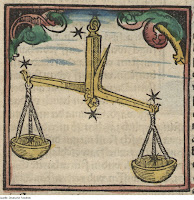Me again

The ability to marvel when considering the simplest of things is the sign of fine intelligence but looks silly to the stupid. “What good is an idle thought,” they say, “when you can’t even sell it?” This reminds me of a story: The new market-street in Samarkand was as rich as you can imagine a place where they piled up and sold the incredible loot of Timur's conquests. In his magnanimity, the Emir had drawn a straight line across the town, side to side. He ordered all houses thrown down and replaced within twenty days by an endless row of fountains and arched shops, each with the same white earthenware bench in front and the same two chambers, front and back. Inside the shops one could see magnificent goods that ranged from the finest cotton to precious silks, elegant lambs-wool hats to chiselled stone. There was paper, porcelain, enchanting perfumes, carpets, pearls and spices, more carpets, musk, halva! In some shops one could just glimpse gold jewellery hammered as thin ...















